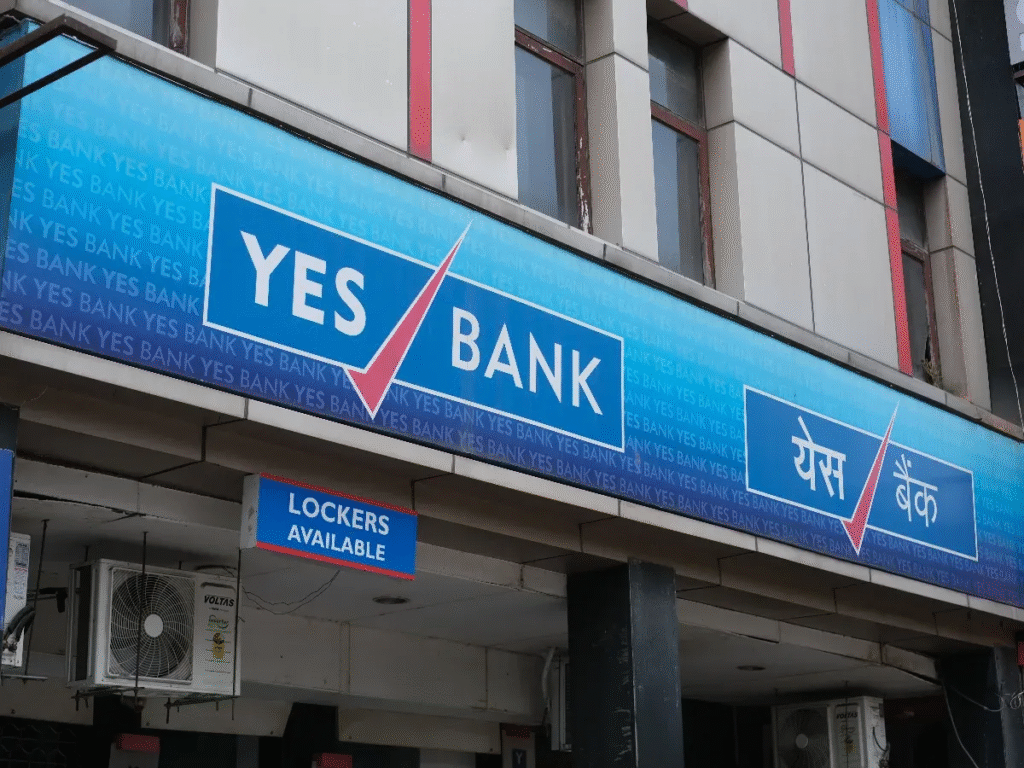Heres the scoop Yes Bank shares are making headlines again! The banks board just gave the green light to a massive fundraising plan of ¹16,000 crore. Thats right ¹7,500 crore will come from equity, and ¹8,500 crore from debt. It’s a bold move that signals aggressive growth plans and investor confidence.
But what does this mean for you as an investor? Lets break it down.
Why Is Yes Bank Raising ¹16,000 Crore?
Imagine a car trying to win a Formula One race with a half-filled tank. That’s Yes Bank without capital. To keep accelerating in Indias competitive banking sector, Yes Bank needs fuel and that fuel is funds.
Raising ¹16,000 crore is part of its strategy to grow, expand lending, improve its balance sheet, and probably clean up any lingering bad loans. With increased capital, the bank will have more room to offer loans, invest in tech, and grow its market share.
The Breakdown: Equity vs Debt
Lets decode the numbers:
-
Equity Capital: Up to ¹7,500 crore
-
Debt Instruments: Up to ¹8,500 crore
This will be done over FY26 in multiple phases, both in domestic and international markets. Yes Bank will issue equity securities through approved channels, ensuring that total equity dilution stays within 10%.
The debt instruments can be issued in Indian or foreign currency giving Yes Bank the flexibility to tap into global capital.
Will This Fundraising Affect Existing Shareholders?
Youre probably wondering will my stake shrink?
The answer is a little, but not drastically. Yes Bank has clarified that total equity dilution from this exercise including any convertible debt will not exceed 10%.
In plain English: You might own a slightly smaller piece of the pie, but if the pie grows big enough, your slice could still be more valuable.
International Moves: Whats Going Global?
Yes Bank is looking far beyond Indian borders. The fundraising plan includes issuing debt and equity instruments not just at home but also in overseas markets.
Its like getting money not only from your neighborhood but also from wealthy cousins abroad. This global approach will attract more sophisticated investors and build international credibility.
The SMBC and SBI Angle: A Strategic Twist
Heres where it gets more interesting.
Yes Bank recently updated its Articles of Association following a share purchase agreement signed on May 9 with Sumitomo Mitsui Banking Corporation (SMBC) and State Bank of India (SBI).
SMBC and SBI arent just investors theyre getting seats at the table.
-
SMBC (or its designated entities) can nominate two non-executive, non-independent directors.
-
SBI can nominate one non-executive, non-independent director.
These changes bring not just money, but also governance expertise to the table. Thats like having a top-notch coach join your cricket team.
Changes to Articles of Association: What Does It Mean?
The Articles of Association (AoA) are basically the rules of the game. Yes Bank is changing them to reflect the new agreement with SMBC and SBI.
However, these changes still need a nod from:
-
Reserve Bank of India (RBI)
-
Yes Bank shareholders
Once cleared, these updates will formalize SMBC and SBI’s board roles and their influence over strategic decisions.
What Happens If SMBC or SBI Reduces Their Stake?
This is where it gets conditional.
If SMBCs shareholding falls below 10%, or SBIs drops under 5%, their rights to nominate directors vanish.
Its like being allowed to drive only if you own the car no ownership, no keys.
So, if youre tracking institutional influence over Yes Bank shares, these thresholds are important indicators.
How the Market Reacted to Yes Bank Shares News
The news of this ¹16,000 crore fundraising has already created a buzz in the stock market.
Yes Bank shares showed early signs of positive momentum, as investors welcomed the fundraising and strategic backing from international institutions like SMBC.
More capital usually translates to better loan book, improved NPA ratios, and upgraded credit ratings all of which are great news for shareholders.
Whats Next for Investors in Yes Bank Shares?
If you already own Yes Bank shares, this news could be a long-term bullish signal.
But keep a few things in mind:
-
Monitor dilution impact it will stay below 10%, but its still worth tracking.
-
Track foreign involvement SMBCs participation is key.
-
Follow regulatory approvals changes to the AoA could shift board dynamics.
And if you’re considering investing? You might want to wait and watch the implementation of this plan. Early signs look optimistic, but execution is everything.
Conclusion
To sum it up, Yes Bank shares are back in the spotlight and for good reason. A ¹16,000 crore fundraising plan backed by domestic and global players like SBI and SMBC shows that the bank isnt just surviving its planning to thrive.
With a well-diversified funding strategy, a clear governance framework, and investor-friendly moves, Yes Bank seems to be shifting gears into a new growth phase.
Final Thoughts
Think of this fundraising move as Yes Bank going shopping with a bigger wallet. More capital means more opportunities. If youre holding or tracking Yes Bank shares, this might just be the inflection point where the bank moves from recovery to resurgence.
But as always, watch the fine print and the RBIs decisions.
Stay tuned. Stay informed.










